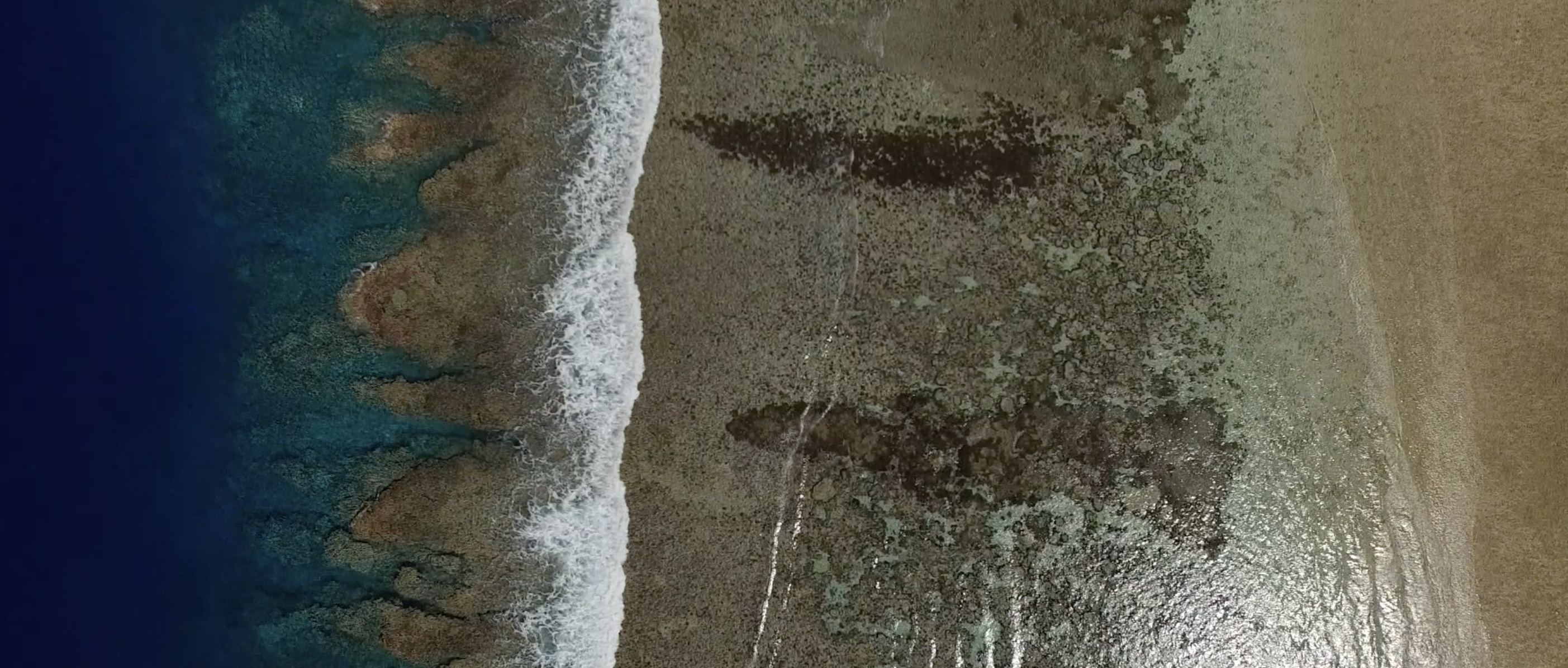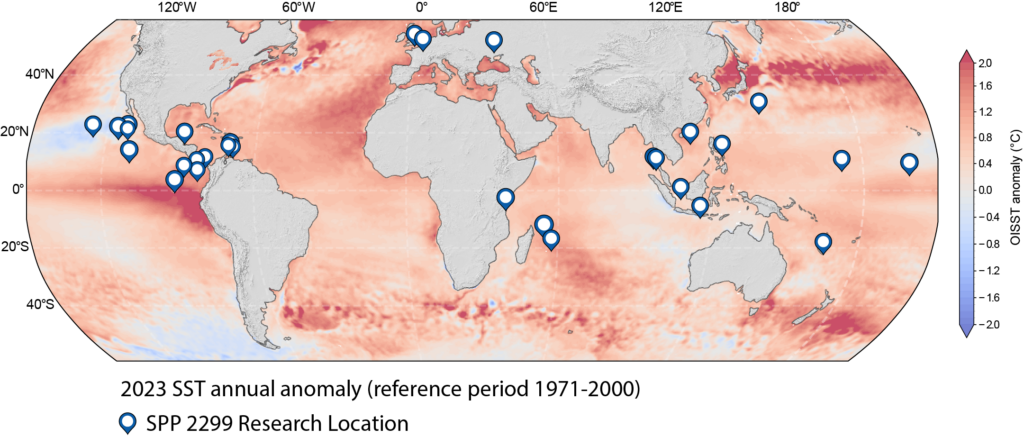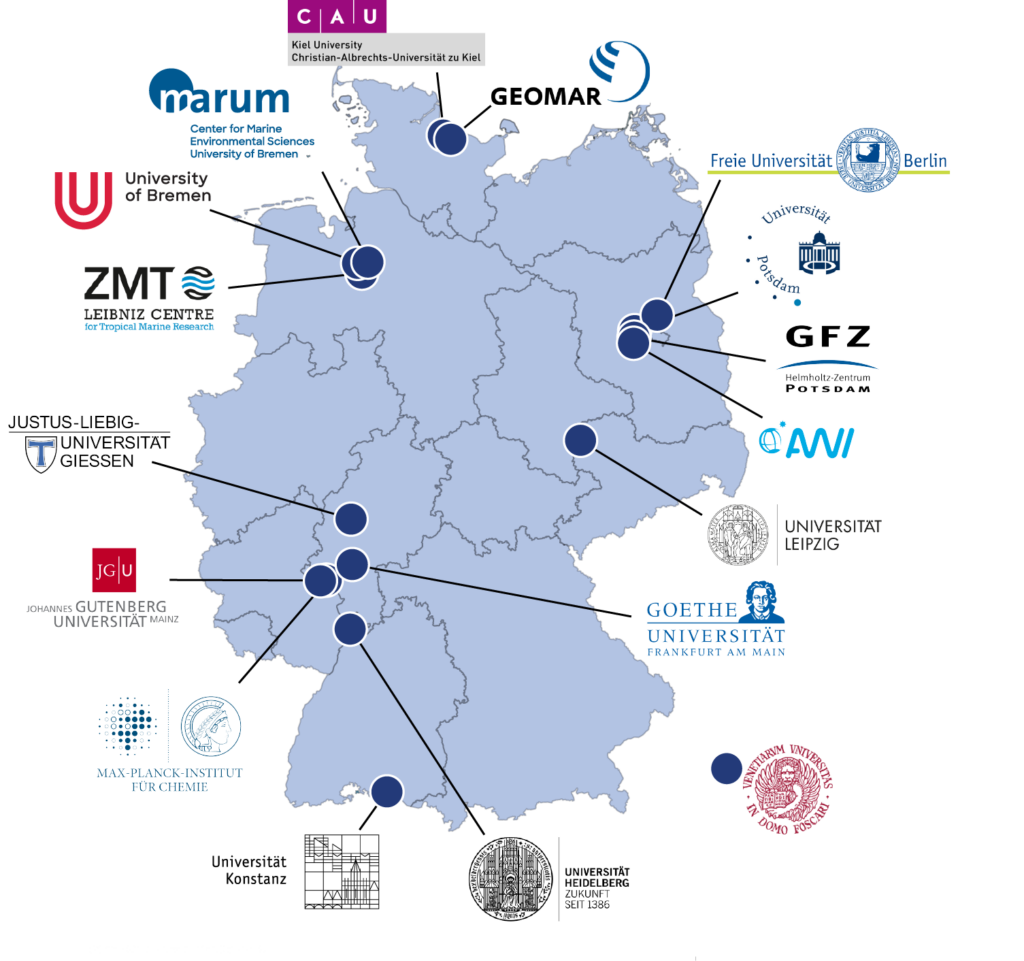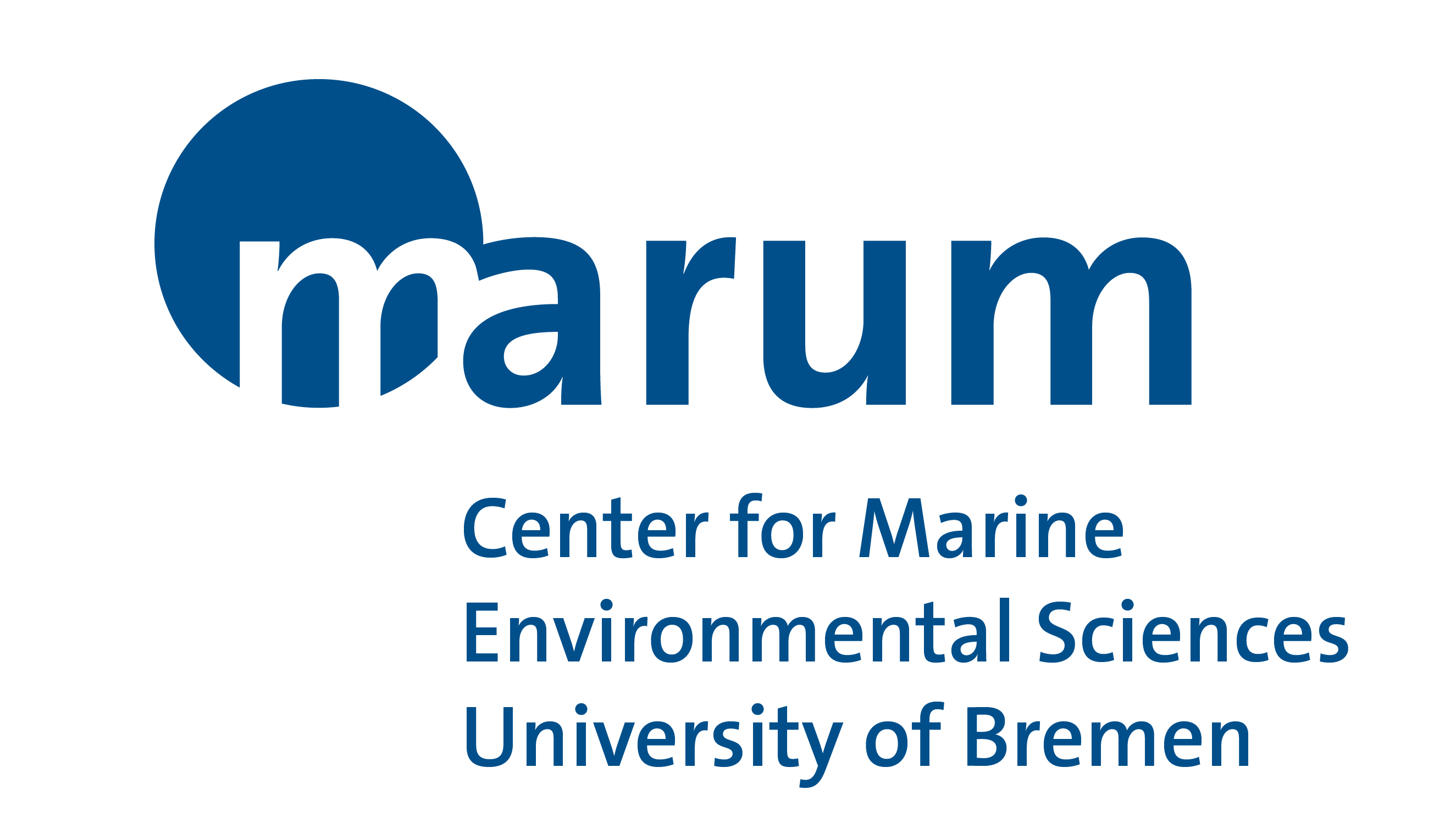
About the Programme
The Senate of the Deutsche Forschungsgemeinschaft (DFG, German Research Foundation) established the Priority Programme “Tropical Climate Variability and Coral Reefs – A Past to Future Perspective on Current Rates of Change at Ultra-High Resolution” (SPP 2299) in 2020. The programme is designed to run for six years. The 19 projects of the first three-year funding period (2022-2025) started in the summer of 2022.
The strongly interdisciplinary Priority Programme brings together the expertise of the German science community in the fields of climate, environmental and ecosystem research in a sustainable manner, and will benefit from the participation of more than 40 researchers from various institutions (10 Universities, 3 Helmholtz Centres, 1 Max-Planck Institute, 1 Leibniz Centre).
Where Are We Working?

Aims and Scope
Climate change, particularly the rise in tropical sea surface temperatures, is the greatest threat to coral reef ecosystems today and causes climatic extremes affecting the livelihood of tropical societies. Therefore, assessing how future warming will change coral reef ecosystems and tropical climate variability is extremely urgent.
Ultra-high resolution coral geochemistry provides a tool to understand the temporal response of corals and coral reefs to ongoing climate and environmental change, to reconstruct past tropical climate and environmental variability and to use these data in conjunction with advanced statistical methods, earth system modelling and observed ecosystem responses for improved projections of future changes in tropical climate and coral reef ecosystems.
The Priority Programme aims to enhance our understanding of tropical marine climate variability and its impact on coral reef ecosystems in a warming world, by quantifying climatic and environmental changes during both the ongoing warming and past warm periods. Additionally, the programme aims to understand the stress response of major reef-building corals in today’s and past coral reef ecosystems.




